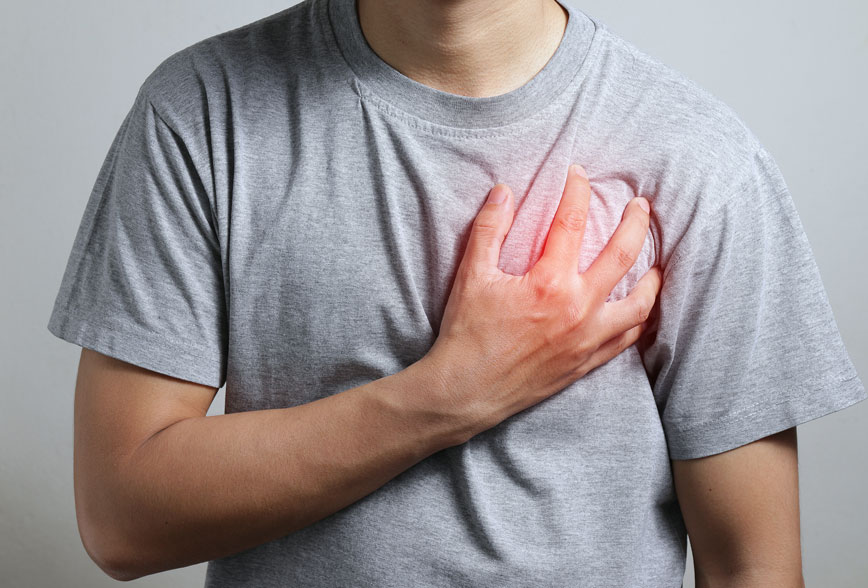Advertisment
Commonly prescribed antibiotic, antipsychotic and prokinetic drugs are associated with a higher risk of sudden cardiac arrest (SCA) in people with type 2 diabetes, study finds

New research being presented at the Annual Meeting of the European Association for the Study of Diabetes (EASD) in Hamburg, Germany (2-6 Oct) has identified a range of characteristics associated with a higher risk of sudden cardiac arrest in individuals with type 2 diabetes.
These include the some commonly prescribed antibiotic and antipsychotic drugs, prokinetics (drugs used to treat gastrointestinal symptoms such as nausea and vomiting) and low fasting blood sugar.
Sudden cardiac arrest (SCA) is a leading cause of death. The condition, in which the heart suddenly stops pumping blood, is responsible for up to 50% cardiac deaths and 20% of mortality in high-income countries.
People with type 2 diabetes (T2D) have a two-fold increased risk of SCA. However, SCA is still difficult to predict, particularly in those without a history of cardiovascular disease (CVD).
Peter Harms, of Amsterdam UMC, Amsterdam, The Netherlands, and colleagues carried out a case control study to assess which clinical characteristics in GP records are associated with SCA in people with T2D with and without a CVD history.
The study involved 3,919 individuals with T2D: 689 cases and 3,230 controls. The cases, individuals who had a sudden cardiac arrest in the in the Dutch region of Noord-Holland from 2010-2019, were each matched by age, sex and GP practice with up to five non-SCA controls.
Clinical measurements including blood pressure and blood glucose readings, medication use and medical history for five years leading up to case’s SCA were obtained from GP records. Measurements not recorded in the records were classified as “unknown”.
Several characteristics were associated with an increased risk of SCA in both people with and without CVD: history of arrythmias (68% increase in risk of SCA), unknown smoking behaviour (40% increase), insulin use (138% increase) and QTc-prolonging prokinetic medication (66% increase)
Many common drugs, including some prokinetic, antibiotic and anti-psychotic medications, are associated with a change in functioning of the heart’s electrical system known as QT-prolongation and are described as being QTc-prolonging. QTc-prolonging prokinetics include domperidone; QTc-prolonging antibiotics include marcolides and fluoroquinolones; QTc-prolonging antipsychotics include haloperidol.
In people with CVD (352 cases/1,207 controls), moderate (54% increase in risk), severe (55% increase) and unknown albuminuria (90% increase) and heart failure (85% increase) were associated with SCA.
In those without CVD (337 cases/2,023 controls), low fasting glucose – an indication of too strict glycaemic control (<4.5 mmol/mol: 150% increase), severely high systolic blood pressure (>180mmHg: 121% increase), low HDL cholesterol (<1.0 mmol/l: 35% increase), high LDL cholesterol (>2.6 mmol/l: 64% increase), QTc-prolonging anti-psychotic medication (187% increase) and QTc-prolonging antibiotic medication (66% increase) use were associated with SCA.
The researchers conclude: “In people with T2D with CVD, albuminuria, heart failure and QTc-prolonging prokinetic medication use are associated with risk of SCA, while in people with T2D without a CVD history, low fasting glucose, severe hypertension, dyslipidaemia (unhealthy levels of blood fats) and the use of QTc-prolonging antibiotic, antipsychotic and prokinetic medication are associated with SCA risk.”
Mr Harms adds: “GPs will already be aware that classic cardiovascular risk factors such as high blood pressure raise the risk of sudden cardiac arrest in people with type 2 diabetes, however, the link with low fasting glucose and antibiotic, antipsychotic and prokinetic medication is less well-known.
“Our results underline the need for GPs to be aware of the hazards of too strict glycaemic control and the prescription of commonly used antibiotics, antipsychotics and prokinetics.





